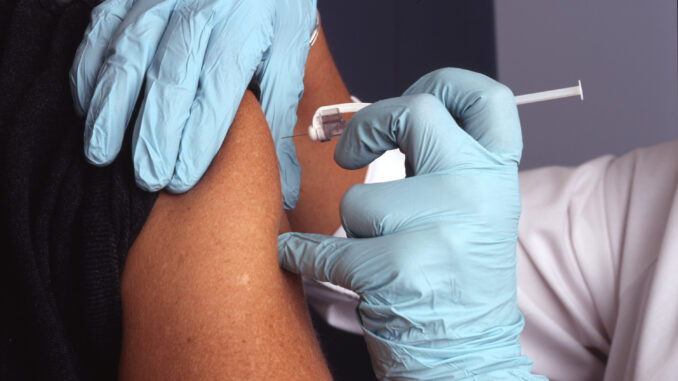
04/15/2021
Alexander Wolfe | Staff Columnist
Before you turn on the caps lock and come for me with pitchforks, the question of whether or not to get the vaccine shouldn’t be one of microchips, side-effects or politics (good grief), but rather one of, frankly, who needs it more.
In the long run, as many people who are able to receive the vaccine should do so, in spite of the notably harsh side effects spanning the initial 48 hours of inoculation. I say that as someone who received his first dose of the Moderna vaccine, and the body ache and nausea are certainly enough to take someone out of commission for a day.
Yet those vaccine conscious among you might justifiably ponder if I fall into an at-risk category or am an essential worker, of which I am neither.
So was it right for me to “jump the line” and race to the Hill District’s Central Baptist Church last week along with dozens of other Duquesne students? Even accounting for the equity concerns — of which there are many — it was ultimately, selfishly and unselfishly, the right choice, and I would encourage others given the opportunity to receive the vaccine to do so as well.
By now, many high-risk and essential service personnel have had the opportunity to receive the vaccine. Nearly 40% of the entire country has received at least one dose of some COVID-19 vaccine, and most states are not scheduled to truly open vaccinations to the general public until April 19.
Furthermore, the inspiring rate of vaccine production and distribution has allowed for traditionally marginalized — and usually high-risk or essential — communities to receive targeted shipments, the Hill District being a prime example.
Yet if polling is to be believed, nearly a third of the Hill District’s Black residents are highly unlikely to make plans to get vaccinated (these numbers fluctuate wildly across different polls from 25%-75%, but 33% seemed to be the most supported). Other polls find vaccine apprehension is less about race and more about education. One NBC poll found similar rates of skepticism among white and Black Americans, while the Marine Corps released information estimating that 40% of Marines offered the vaccine had declined, albeit some citing these similar equity concerns.
Despite this, you’d be right to presume that somewhere close to your local vaccination site, there is someone who needs that vaccine more than you, or that the United States should be sending more doses of vaccines overseas to countries that have thus far been unable to procure them.
Yet the time table driving vaccine production, delivery and use forces us to remove this neediness criterion from our decision-making. Individuals choosing not to receive a vaccine cannot at this point be forced to do so, and the short shelf life of these vaccines, in addition to the private and social benefits of inoculation, demands we use as many vaccines as possible as soon as possible.
As someone returning from China in December, where the CDC has determined COVID-19 had been spreading quietly since September, the thought that I could have unknowingly been an asymptomatic host upon my December return is not exactly a comforting thought. I assume the same goes for the thousands of individuals who lost family members in the post-holiday death spikes after attending family gatherings while positive, consciously or otherwise.
While we are first responsible for protecting ourselves, the pandemic has taught us that we can be equally responsible for protecting our loved ones. This is the essence of our collective responsibility to vaccinate — that we have to be prepared to take any opportunity to keep those around us safe.
If Duquesne students and organizers administering vaccines at Central Baptist Church hadn’t informed Duquesne of the extra doses received, it’s entirely possible many individuals who received the vaccine may have been stricken with the virus. While we enter into an optimistic period for those willing to receive the vaccine, we should remember that receiving the vaccine is both an unselfish act to protect others, but primarily a selfish act to protect yourself, and that is OK. At a surface level, it keeps a hospital bed open, while more broadly, each person vaccinated is another step toward returning to some sense of normalcy.
As of April 13, the PA Department of Health announced that every Pennsylvaian over 18 is eligible to receive the vaccine. So, do not hesitate to find a vaccine appointment. Nearly 3.5 million vaccines are being administered every day — about 1% of the country — so there will be ample opportunities to get vaccinated in the coming weeks.
Rather than be tied down by the idea that you shouldn’t yet receive a dose, value your newfound freedom — responsibly because vaccinated individuals can still spread the virus — and look around you to help and encourage the significant portion of Americans still cautious about receiving a vaccine.

